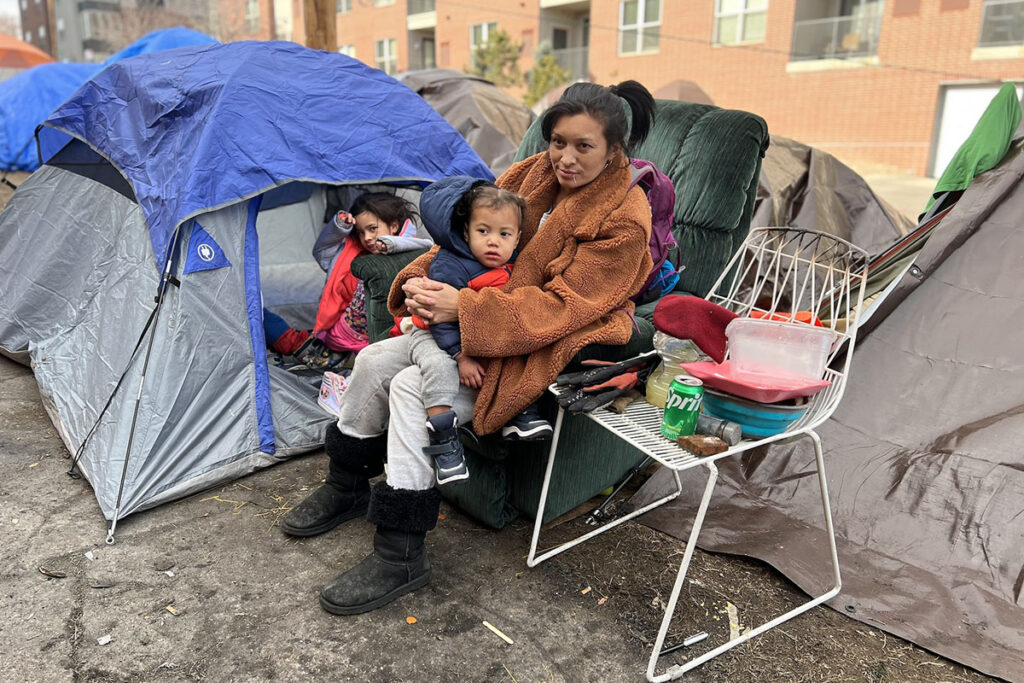
IN FRONT OF QUALITY INN | Venezuelan migrant Lenny Maris González with two of her children. (Photos / El Comercio de Colorado)
DEFYING WINTER AND LEGALITY IN THE UNITED STATES
By Jennifer Brown – The Colorado Sun
Co-authored by Jesús Sánchez Melean – El Comercio de Colorado
Haga click aquí para leer la versión en español
As winter approaches, migrant families no longer face time limits in shelters, but single adults must leave after 14 days.
Lenny Maris González wanted to come to the United States for the sake of her children, she explained as her youngest son, 2-year-old Yaxi, hurried to climb onto her lap beside their tent on a Denver sidewalk. On a cold December day, the Venezuelan mother described how, after her husband died from COVID, she traveled the rest of the way to the United States from Colombia with her five children and her brother.
Now, they cook their meals on a small grill on the street, using donated snow boots and huddling in a tent outside the Quality Inn, near the corner of Speer Boulevard and Zuni Street. “He left me with five kids, and I decided to migrate for a better future, for my kids, for their education,” said González in Spanish, sitting on a comfortable green recliner outside her tent.
Unrecognizable Neighborhood
Around her, the street in Denver’s Highland neighborhood in the northwest is unrecognizable, a result of a city overwhelmed by its efforts to assist the nearly 30,000 Venezuelan migrants who have arrived in Denver in the past year. The tent camp, which has expanded further into the street in recent weeks, is outside one of the five hotels that the Denver Department of Human Services is using to accommodate 2,700 migrants.
Cars can barely pass because both sides of the street are filled with tents covered with tarps. In the middle of the street, workers and volunteers from nonprofit organizations park vans and trucks to distribute food and children’s cough syrup. People rummage through overflowing cardboard boxes of shoes and coats for children, and a child shouts with joy upon finding a Spiderman pajama among the donated clothes.
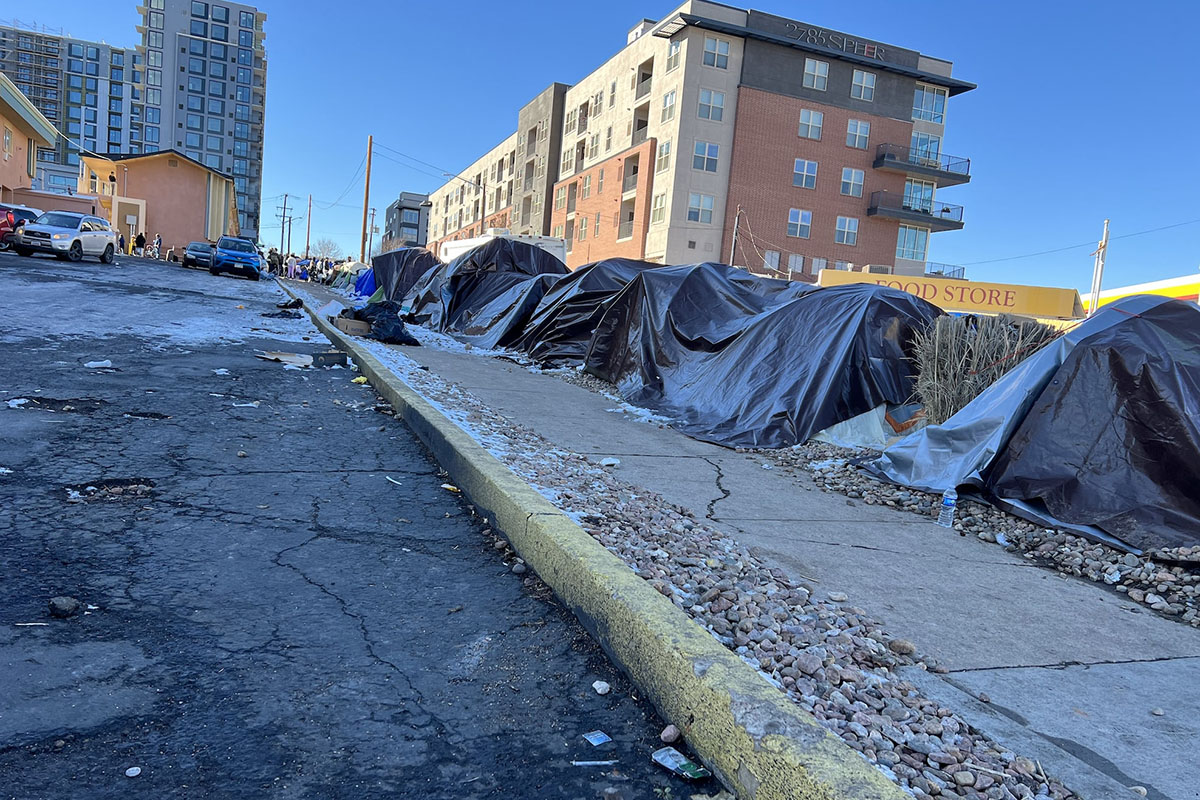
IN THE HIGHLAND NEIGHBORHOOD | Camp of Venezuelan migrants.
Indefinite Accommodation for Families
Most families, including González’s, have rooms in the hotel, but she and her children spend their days outside so she can cook for them. Perishable foods are not allowed in the rooms, and every day, volunteers bring donated food and other items to those on the street. Some of the children in the camp attend nearby schools, and González said a Denver Public Schools worker who visited the camp told her that her children could start classes in a few days.
Migrant camps are growing in other parts of the city. There are camps near some of the other hotels rented by the city’s human services department. This is partly because families were previously allowed to stay in hotels for 37 days, and when their stay ended, some moved to tents outside. However, the city changed its policy on November 17 due to the cold weather and now allows families to stay indefinitely in hotels.
González said she exhausted her 37 days in the hotel, then moved outside for about 10 days. She said she was invited back to the hotel after the policy change. “They brought me back because it was snowing,” she said, wrapped in a brown wool coat. “It was snowing, and they were taking everyone who was in here outside.” Single adults, however, can stay for 14 days before their time runs out. For many, it’s not enough time to find more permanent housing, and they end up in a tent.
A Year Arriving in Denver
Venezuelans began arriving in large numbers by bus in Denver a year ago. Since then, the city has implemented an emergency operations system and spent $33.6 million. It is expected that the number of Venezuelans passing through the city since last December will reach 30,000 by mid-December. Thousands have received one-way bus tickets to other cities, mainly New York and Chicago, and an unknown number have stayed in Colorado.
Buses from Texas arrive daily. For example, on Monday, December 4th, 50 people were dropped off in front of the state Capitol early in the morning. Migrants, many of whom sought asylum after crossing the U.S.-Mexico border in Texas, check in at a reception center after arriving in Denver. If they want to stay in the city, they are transferred to one of the shelters, including the Quality Inn across Interstate 25 from downtown.
A City Spokesperson Speaks
The Denver Department of Human Services was able to eliminate the time limit in the shelter for families because, after a surge in arrivals in October, the numbers were decreasing. “And there was quite a bit of snow in the forecast and cold weather,” said Jon Ewing, a spokesperson for the Denver Department of Human Services. “We just wanted to make sure that kids weren’t out on the streets in dangerous conditions. We told families who had exhausted their time that they could come back inside.”
Ewing said some families refused, choosing instead to stay outside with the belongings they have acquired since arriving in Denver. On a recent night with below-zero temperatures, he tried to persuade a woman and her three children to stay inside, suggesting her husband stay in the tent to watch over their things. “She wouldn’t do it. There’s no reason someone with kids should sleep outside,” he said.
Families choose to stay outside, or they choose to stay in their tents during the day and sleep in the hotels at night, in part because they are accumulating piles of clothes, blankets, food, grills, and even furniture, Ewing said. The official added that “we have concerns about people accumulating too many belongings. Hotel rooms have limited space. You can’t stack blankets and clothes; it’s a fire hazard.”
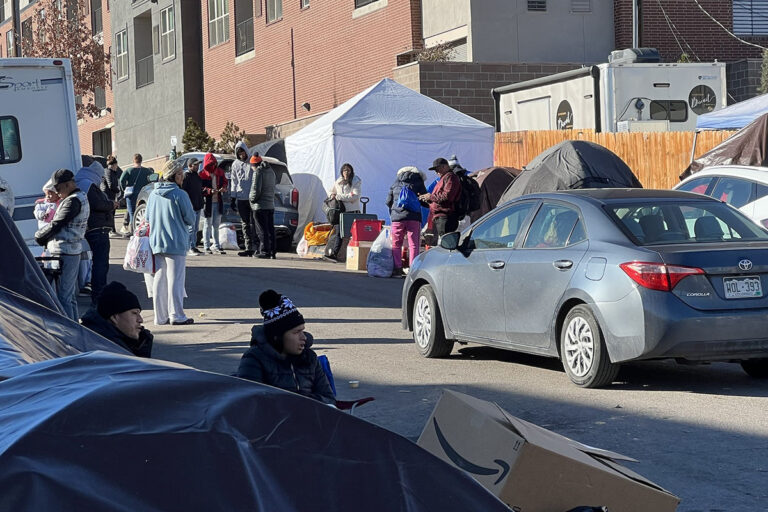
WITH DONATIONS | Volunteers arrive daily to aid migrants.
Code of Conduct
The goal is for migrants to find stable housing, and many have received assistance from non-profit organizations that cover their apartment deposit and, at times, the first month’s rent, stated Ewing. However, there are not enough homes, funds, or non-profit organizations to help everyone quickly enough. After a year of almost daily arrivals of Venezuelans, evidence that public entities and non-profit organizations have been overwhelmed is visible around the city.
A camp also formed around another hotel rented by the Denver Department of Human Services, this one near Interstate 70 and Peoria Street. And at a hotel in Aurora, fee-paying residents said they were ordered to move to make room for Venezuelan migrants whose rooms were paid for by the city. “We would never ask existing guests to leave; that didn’t come from our management. I’m not very happy with that,” stated Ewing.
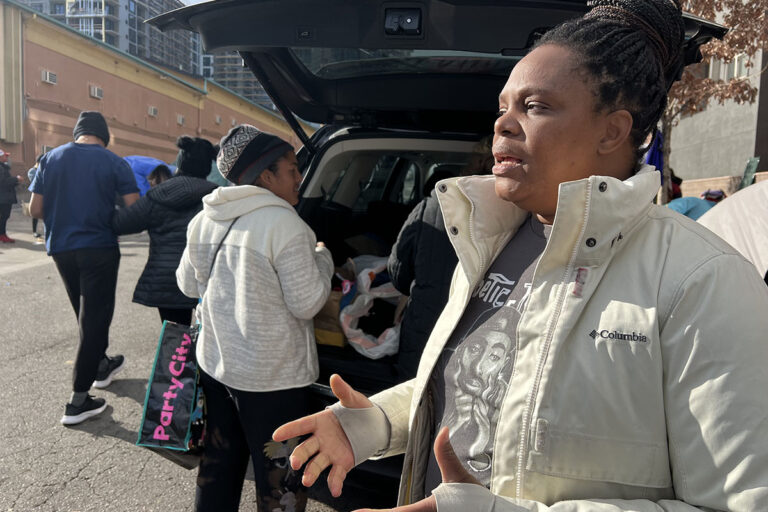
VOLUNTEER | Jamillah Richmond frequently visits the camp.
This report is a collaboration between The Colorado Sun and El Comercio de Colorado.
You may also like:
Aurora and Chihuahua Solidify Their Sisterhood



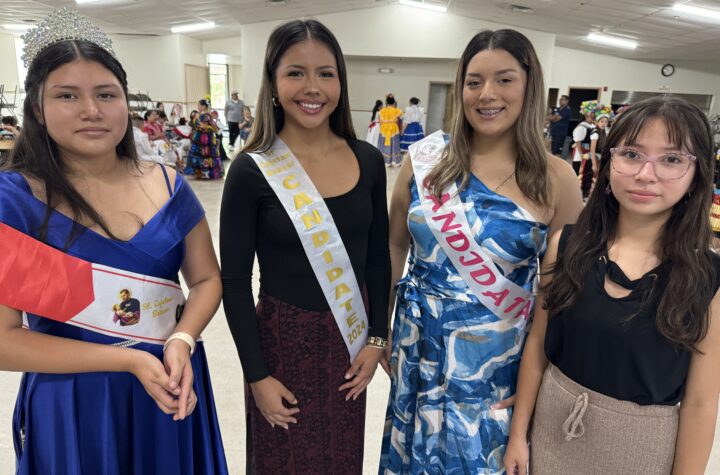

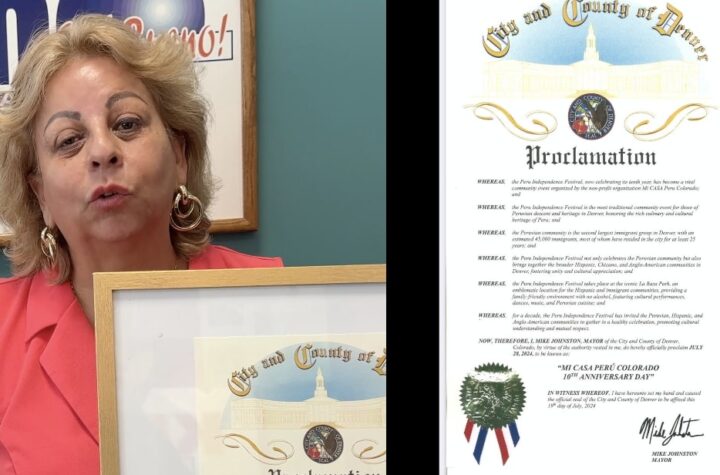
otras noticias
Colorado housing costs 8th least affordable in nation
Rhetoric or Reality
We Combat Wage Theft with Community Partners